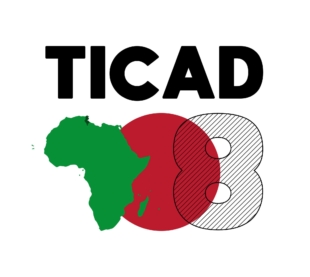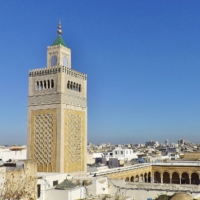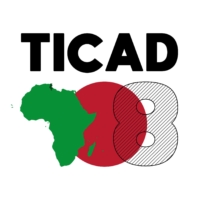In 1878, the famed British explorer Henry Stanley dubbed Africa the Dark Continent, a term that quickly spread and saddled Africa for more than a century with a public image that included poverty, backwardness, corruption, famine, damage from colonial exploitation, disease and other woes. And sadly, while the picture is always more complex, it cannot be denied that such problems frequently plagued the continent in historical reality as well as in distorted global attitudes.

But times change, and fortunately so do monikers. In global business circles today, the new catchphrase for Africa seems to have become “the last investment frontier,” reflecting a much more upbeat perspective. And indeed, the facts speak for themselves: From 2002 to 2011, sub-Saharan average real gross domestic product growth rates were an eyebrow-raising 5.8%, and on balance, direct investment to Africa soared 400% from 2003 to 2013. The world is sitting up and taking notice, and although Africa faces serious headwinds, there is much burgeoning optimism about future economic development and consumer market growth.
Japan is among the nations that have significantly stepped up involvement in Africa, but as we shall see, it is taking a tack that differs in a number of important ways from the moves of other major actors.
The power of conferences
To grasp the nature of Japan’s complex involvement in Africa and how it is unique, a good place to start is to examine the Tokyo International Conference on African Development, founded in 1993. It is led by the Japanese government, and more specifically, it takes place under the auspices of the Foreign Ministry. To get a sense of its reach, in the 2019 TICAD, the 10,000 participants included 42 African leaders, 108 heads of international and regional groups, and numerous private-sector luminaries. Co-hosts included the United Nations itself, as well as specific U.N. bodies.
A singular vision
While China, the U.S. and the EU have also established similarly impressive conferences, for the most part these have focused tightly on trade and economics. These are important aspects of the TICAD agenda as well, but TICAD’s concerns have always included social and human issues, an emphasis on partnership and other goals.
TICAD’s unique vantage has its roots in the distinctive view of Africa that arose in Japan during the early post-Cold War era. During this period, Africa itself suddenly no longer seemed geopolitically vital to most of the developed nations. Japan, however, stood out from the pack, insisting on the importance of Africa and founding TICAD in response. The early days of TICAD saw an emphasis on grant aid and technical assistance.
However, as the 21st century dawned, China became a potent new presence in Africa, emphasizing investment and business rather than “aid” or “assistance.” Chinese-African import-export volume increased a staggering 1,000% between 2003 and 2013, while the figure for Japan “merely” tripled in the same period. By 2013, Korea had also surpassed Japan in terms of to-Africa export value.
Japan began to understand that a new approach to Africa would be required in response. In 2013, professor Mitsugi Endo of the University of Tokyo noted, “We must look at Africa not only as a continent to extend assistance to, but also as a business partner and an area for investment.” Both public- and private-sector actors in Japan concurred, and a shift in TICAD’s perspective began.
TICAD’s scope expands
The last half-decade or so has seen many changes in TICAD’s approach, and yet this has in no way meant the abandonment of Japan’s more altruistic goals for Africa. During the most recent period, TICAD has combined the new private-sector focus with its commitment to social issues. Cleverly realizing the mutual benefits that can accrue from leveraging the former in service of the latter, TICAD has been achieving win-win outcomes for all involved.
A close examination of the upcoming TICAD 8 event, to be held in Tunisia on Aug. 27 and 28, is quite instructive in a number of ways. Naturally, the conference will be overshadowed to some extent by the ongoing COVID-19 pandemic and the conflict in Ukraine. Although these are global issues, they both have particular impact on Africa.
Africa continues to be haunted by the impact of the coronavirus due to challenges facing its health care infrastructure and systems. Health care has been specially singled out as an agenda item for TICAD 8, with efforts to solve problems by creating robust, durable networks of African facilities, pushing for universal health care and addressing the issue of inclusivity. Human resource development is also a subject of TICAD initiatives and concrete results are already emerging.
Africa faces a number of challenges that have yet to be solved. In particular, another marquee issue on the agenda for TICAD 8 is exploring ways to ameliorate the massive food shortages expected in Africa later this year. The forecasts are grim, potentially disrupting the food security of millions of Africans, and the situation is a direct result of the Ukrainian conflict. Because of food supply destruction, the bombing of grain silos, trade route blockades and the lacing of cropland with land mines, Ukraine’s food exports for 2022 are expected to plunge precipitously. This could lead to particularly horrific results for North and East Africa, vast portions of which depend directly on Ukraine for much — if not most — of their basic food supply. With few seeming alternatives, this difficulty will be hard to resolve.
Strong track record
In addition to the major focal points noted above, Africa faces a number of thorny problems too numerous to list comprehensively here. Important issues on the table in Africa range from energy scarcity to agricultural development, cultural preservation, wildlife protection, global warming, the development of the African fintech and information technology sectors, heavy industry and beyond. Since it is impossible for any actor to take on every problem, in 2019 TICAD 7 identified several areas of particular emphasis. “(1) Accelerating economic transformation and improving business environment through innovation and private sector engagement; (2) Deepening sustainable and resilient society; and (3) Strengthening peace and stability.”
TICAD’s track record in helping Africa to solve these and other problems on its own with Japanese partnerships has been extremely encouraging — again, so much so that a total list of all the projects underway would fill many pages. To consider just a few success stories, Japan has used online seminars and webinars (a common COVID workaround) to expand Africa’s digital economy and boost innovation. It has matched Japanese and African startups working toward similar goals. Japan has helped boost African productivity by providing vocational training for 157,000 Africans, focusing on areas such as intellectual property and general business training. In terms of agriculture, Japan has used cross-border cooperation to boost African rice production and general foodstuff capacity building. It has used the digital skills of Japan’s private sector to improve African food value chain development, farm mechanization and irrigation. These are just a few of the ways Japan’s new approach has resulted in massive improvement over the past several years alone.
The TICAD way
Achieving real results is not only a matter of problem identification and solution: It must include ways of seeing and acting. TICAD began in uniqueness, and it has continuously nurtured unique perspectives that allow it to thrive.
For example, TICAD has chosen to focus on quality over quantity as a way to respond to the massive scales of other countries’ projects. It is multilateral, in that it is not a closed system involving only Japan and Africa, but a forum that welcomes partnership with and participation by organizations, governments, companies and individuals from all over the world. Why limit your options?
Furthermore, TICAD places value on African ownership and African participation in plan creation. This ensures that while Japan may certainly benefit from its work, it never slides into neocolonialism. This approach earns great respect for TICAD in Africa.
While challenges will always remain, TICAD’s flexibility, altruistic roots, ability to turn ideas into results and open-ended, flexible approach provide a scalable system that in theory is limited only by human effort and ingenuity. The Earth’s problems may be endless, but our species has never stopped demonstrating that solutions can be endless, too.





